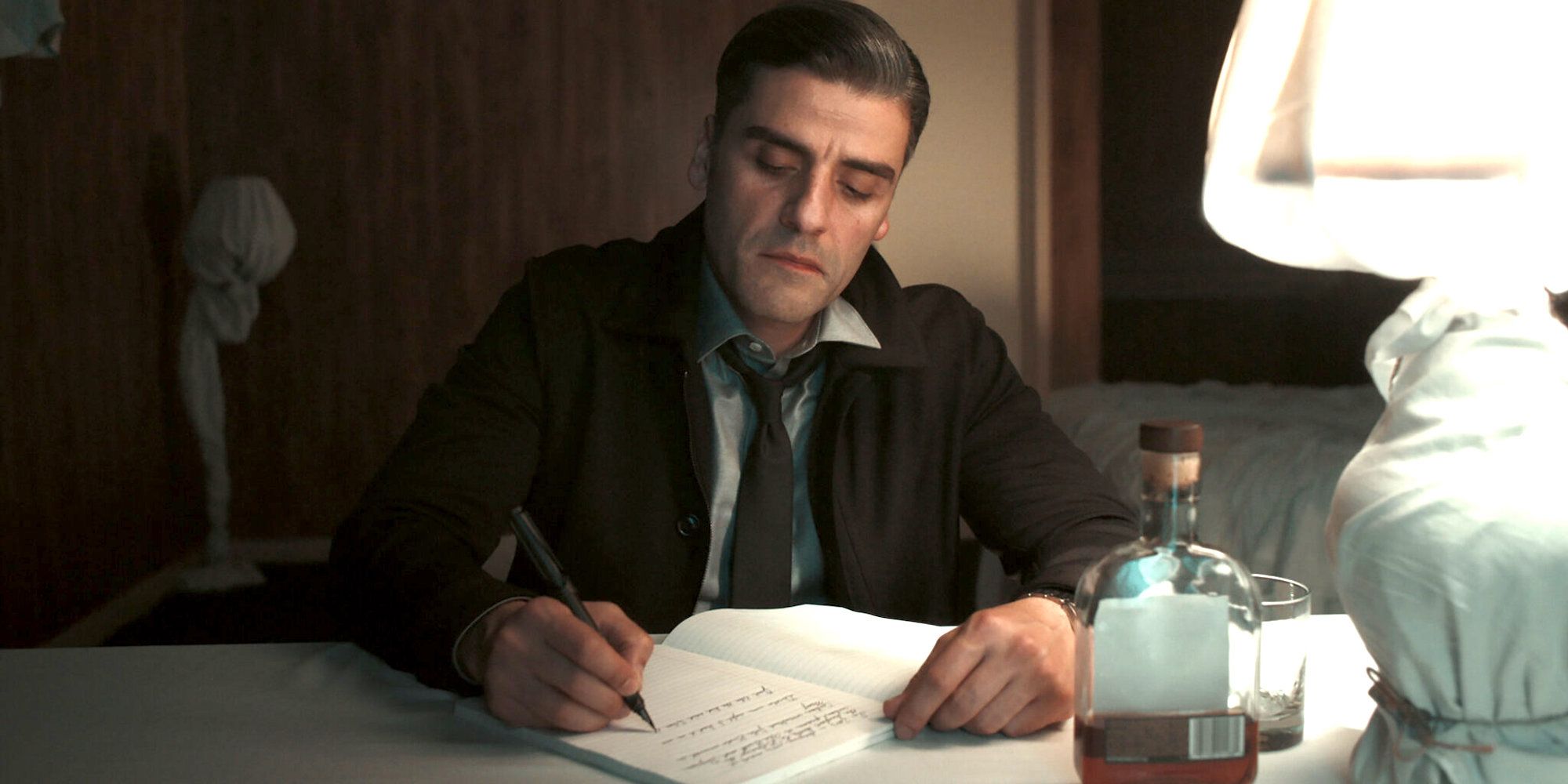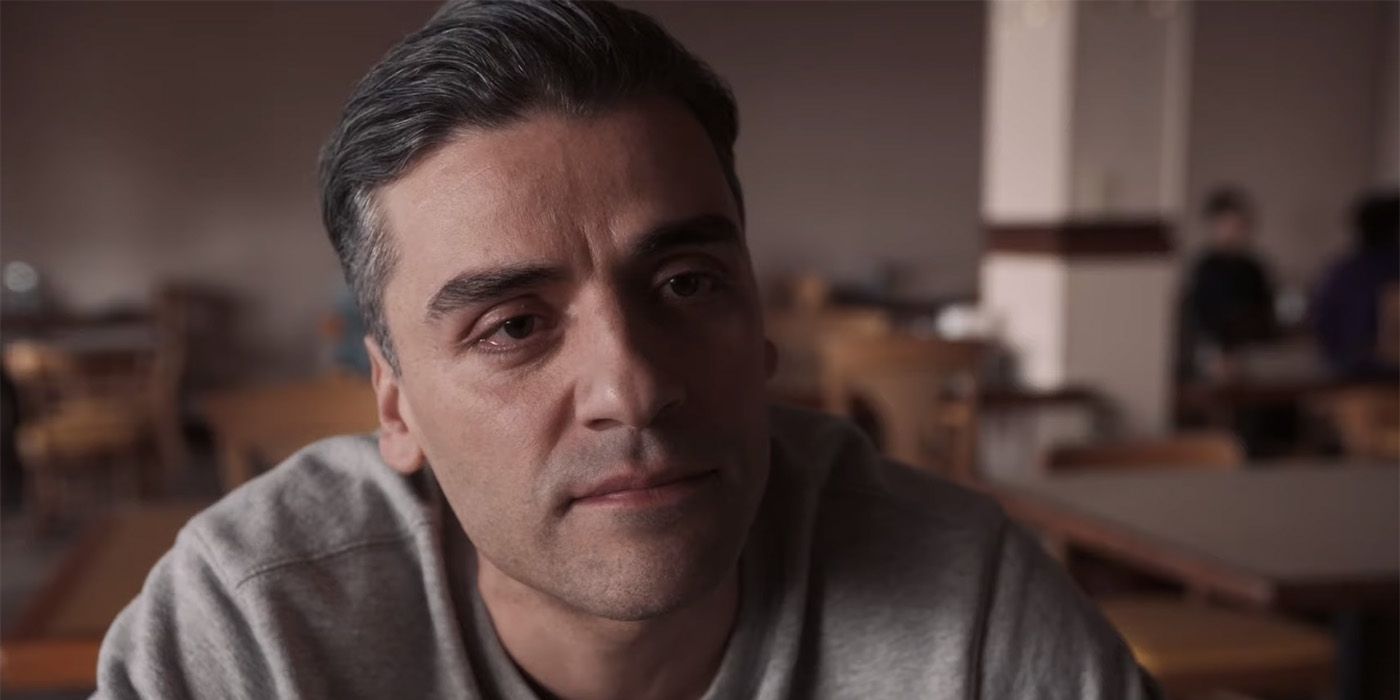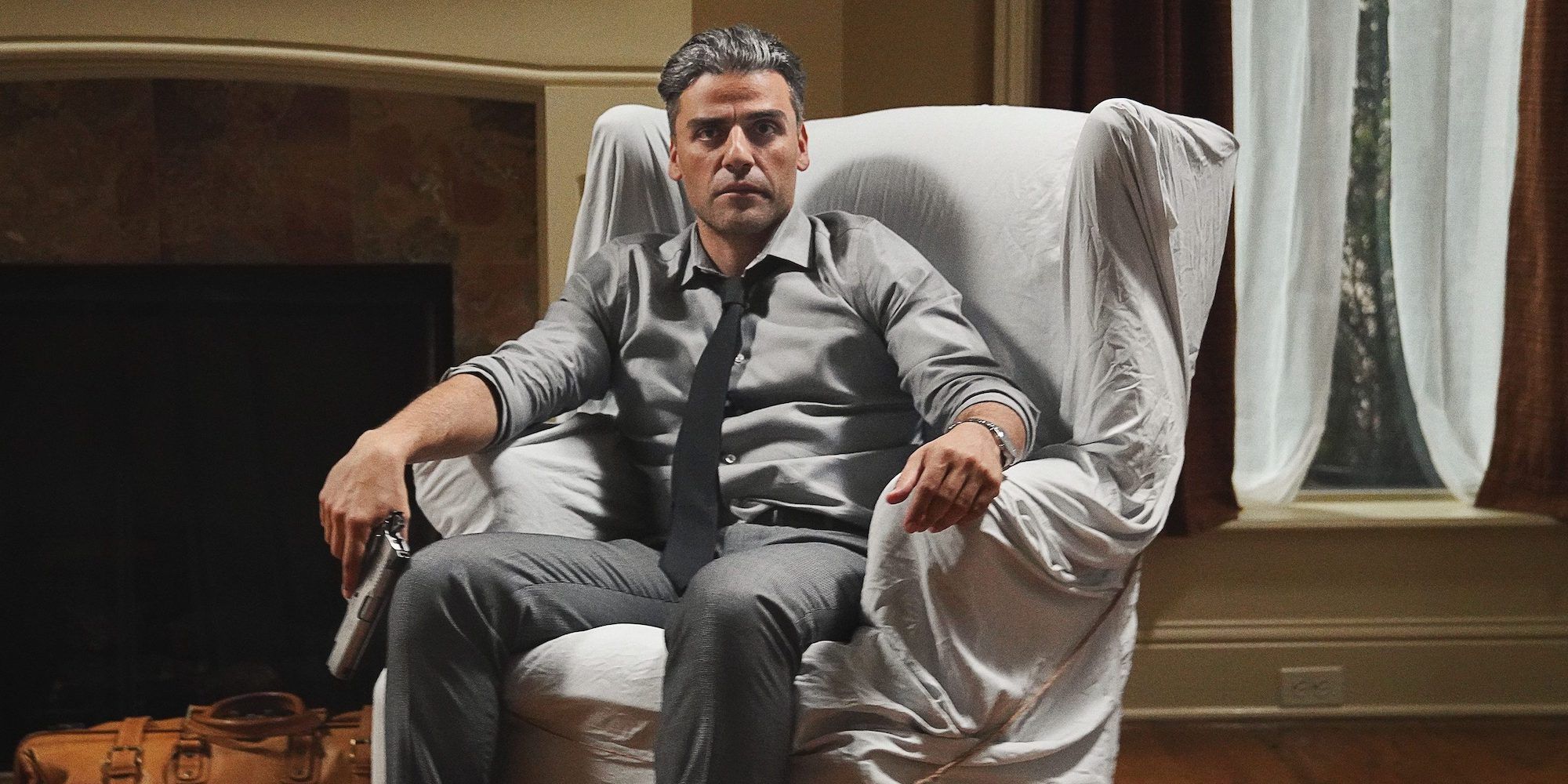In Paul Schrader's The Card Counter, protagonist William Tell has a strange habit of covering hotel furniture with sheets, but why? After premiering at the Venice International Film Fest in 2021, the film hit theaters on September 10, 2021. It currently boasts an 87% critical score on Rotten Tomatoes (making it Certified Fresh), with reviews praising Isaac's gripping performance as a man haunted by his past.
That past is dark, indeed: As is slowly revealed in the movie through jarring and discordant flashbacks in The Card Counter, Oscar Isaac's Bill was a young U.S. Army soldier stationed at the infamous Abu Ghraib. Initially a wide-eyed rookie who had moral qualms about what was going on in the prison, Bill was soon joining in with the worst of them, committing atrocities against the prisoners that were well-documented in real life. After spending time in a military prison for his crimes, Bill now travels the country as a gambler, living a transient and monastic existence of playing poker and sleeping in cheap motel rooms.
His ascetic life is exacerbated by a strange ritual he conducts every time he gets to a new motel, which itself is heightened by the intense solemnity of Oscar Isaac's performance. When entering the room, he works his way around every piece of furniture except the bed, and wraps them in sheets, securing them tightly. It's a bizarre habit that isn't explicitly explained in the film. However, the movie gives enough context about who Bill is to gather some possible reasons for it. The first and most simple is that he's hiding his fingerprints. Bill carries deep shame about who he is and what he did in his past, preferring thatno one get to know him to the point of near-paranoia. It may be a reflexive and irrational act, but it makes sense that Bill wouldn't want to leave any trace of himself or his identity behind.
Bill May Be Trying To Preserve His Peace
There are other reasons, too. The film opens with Bill's monologue, and he explains that he never expected to find himself in prison despite ending up there before The Card Counter's events and ending, but he was surprised to find that he gained a certain peace from it. The certainty, the strict routine, the starkness, the relative isolation, and the blandness were soothing to him. It's understandable. The Card Counter doesn't pull any punches with Bill's Abu Ghraib flashbacks, filming it with a distorted fish-eye Go Pro effect and taking pains to show the constantly flashing lights, the blaring, pounding heavy metal music that screamed through the prison and didn't allow the prisoners – or guards – to sleep. It was a time that scarred Bill as badly as the prisoners he dealt with, and thus, his current life is all about trying to maintain that neutral blankness, not just in his routine but also his surroundings. Casinos are also notoriously loud and chaotic, so Bill maintains his peace of mind by making his motel room as blank a canvas as possible.
Bill May Not Feel He Deserves Anything But A Prison Cell
Oscar Isaac's upcoming Metal Gear Solid, based on the best-selling video games, will portray a more typical side of the military experience. But The Card Counter explores an aspect rarely explored in Hollywood: not portraying the soldier as a hero, but how war makes monsters of all. As with much of Schrader's work, The Card Counter presents an interesting and difficult story about a man with a number of sins upon his soul. Bill's continued, all-consuming guilt about his past is clear throughout The Card Counter, and it could be that by confining himself to cheap motel rooms rendered sterile and anonymous by white sheets, he's attempting to reenact his prison experience as a way to keep punishing himself. While certainly a darker take, this concept would seem to be supported by the subtle, strong performance from Oscar Isaac, who embodies a man so consumed by his past that he seems doomed never to escape it.
Throughout The Card Counter, the stark contrast between the Abu Ghraib flashbacks and the present day, as well as between the casinos and Bill's motel rooms, is meant to represent the hard line he's drawn between himself and his past: That was the Bill of the past, and the past is behind him. However, like his sheet-wrapped furniture reveals, that past isn't as far from his mind in The Card Counter as he likes to believe.



